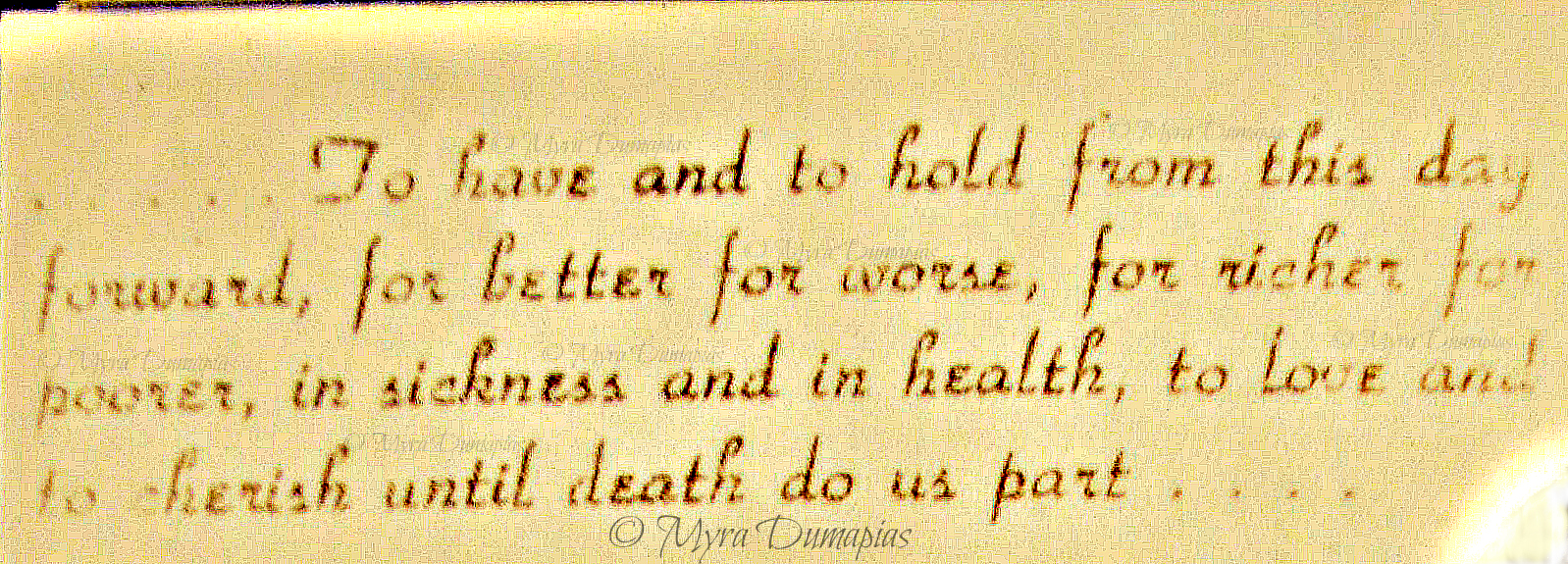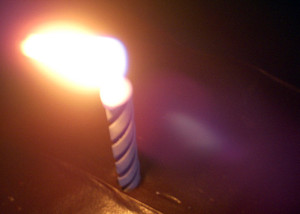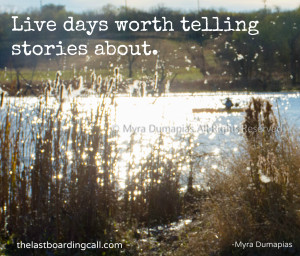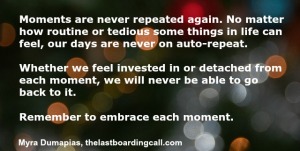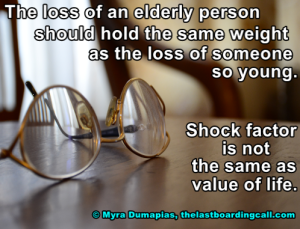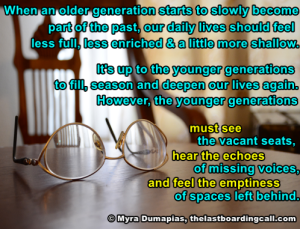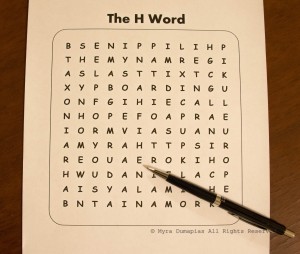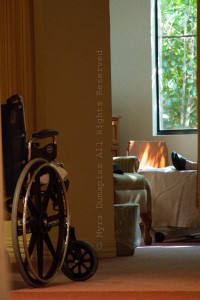In Sickness and in Health: The First Year of Grief, in My Father’s Words
My father has five pieces of advice from his first year of grieving since my mother passed away, but first let me describe their marriage. If you have ever found someone you could be your complete self around without having to hide a part of who you are… someone you could be the angriest self you’ve ever been but find them still around long enough that you share your next laughs together… someone who knows you so well that when they look into your eyes, they are already listening to you… someone who has learned what words can break you and breaks each time they regret ever saying them in the past, you’ve been blessed with something not everyone has. I’ve witnessed this type of love in my parents’ marriage.
Throughout my parents’ marriage, they loved each other through the various emotions human beings can ever feel and through the different stages intimate relationships usually go through. I witnessed the strength of their love through different seasons like a tree that sways with changes, but still remains standing tall and alive after the storm passes. I cannot imagine how my father feels without his long time life partner now for almost a year, the longest they have ever been apart since they got married. Therefore, I decided to let him share his own words about the past year:
MYRA: Papa, it is almost a year now, coming up in about two weeks that Mama left us. Do you feel different in your journey of grieving Mama at this time compared to how you felt last year?
PAPA: Even until now, about a year after, I still feel part of me is empty. In fact, my grief for her departure is as deep as the hour she left. Perhaps to console myself, I sometimes stand next to her bed and blurt out that I miss her, and I love her.
MYRA: I do something similar when I miss her, but I can’t imagine how you must feel. Not long after Mama passed away, I remember speaking to a neighbor who described her feelings after her husband died as having a hole in her heart. She also lost her mother around the time she lost her husband. She said that losing a spouse is a different, more intense kind of pain.
Does this describe how you’ve felt? Can you describe how that pain has been and the process you feel you have gone through in the past year?
…There is something very personal that touches the innermost sensitivities of our soul when we lose someone with whom we’ve shared our most intimate feelings and thoughts throughout the years.
PAPA: Losing anyone you love is painful as it is, whether it is your parents or a brother or sister. But there is something very personal that touches the innermost sensitivities of our soul when we lose someone with whom we’ve shared our most intimate feelings and thoughts throughout the years. Eva had been by my side as a young mother of our only daughter – you, Myra – through the challenges as well as joyful times from the martial law years in the Philippines, to the postings in China, Malaysia, Germany, Romania, South Korea, Bahrain, and Mexico. We were together when we experienced the saving grace of the Almighty in the revolution period in Romania, when we shared the Gospel to the Filipino workers in Korea and Bahrain, and when we experienced God’s miracles in the Kingdom of Bahrain.
To an elderly man or woman who suddenly lost a partner, any moment of the past is very special and can trigger nostalgia as well as pain at the sudden realization that someone we used to share stories and laugh with daily is no longer around. So we sit back in silence.
A spouse does not find the depth of their love until they serve their partner.
Even months after she joined the Lord, I still could hear her voice calling “Papa!” In her last seven years, she was bed-ridden as a stroke survivor, and I was her primary caregiver twenty-four/seven. In Eva’s last fourteen months, you, Myra, sacrificed much of your time providing extra care for her. For several months after Eva’s memorial service, whenever I went anywhere, I still felt I should rush back home “because Eva is waiting for me,” I always said to myself.
Although those last years demanded many sacrifices – short hours of sleep, irregular meals, etc. – to me, they were worth much more than otherwise. I will never exchange all the moments we spent together even as she was in a wheelchair and later bed-ridden. A spouse does not find the depth of their love until they serve their partner. The more a spouse sacrifices for their husband or wife, the deeper becomes the love. No wonder Jesus washed the feet of His disciples and said to them, “If I don’t do this to you, you have no part of me.”
MYRA: What has been the most helpful for you since Mama passed away? What activities, conversations, words, etc. have helped?
Continuing closeness with family….”extended family”….the “outside world”…
PAPA: Having my daughter and grandson to share those moments of sadness with, as well as the presence of Eva’s siblings who visited, and the prayers and kind words from friends, neighbors, relatives and the church gave me much comfort. Beyond the period of mourning, the continuing closeness with family – you and my grandson – significantly eases the pain. The ever-ready kindness and attachment assured by my brothers, sisters, cousins, uncles and aunties as well as friends from our younger days are irreplaceable. The consistent understanding, patience, and help from friends and neighbors give me assurance that as I readjust to a new life, I will not be alone in the journey. In practical terms, they are part of my “extended family” in San Antonio. Fellowship with members of the churches we attend had also helped in my transition to the “outside world.”
Working on the book that the Lord had impressed in my heart to finish re-directs my soul from grief to a meaningful existence, now that my partner in life is gone. Joining a writers’ group recently has given me encouragement and technical assistance especially in the areas of editing, interior/book cover design, and marketing in a self-publish but affordable approach. In a sense, the writers’ group is my first social activity since my wife died.
But most important of all is the Lord Jesus Christ who gives me strength in every step of my journey from the depth of sorrow.
MYRA: Are there any encounters or situations you have had that was not very helpful in the grieving process or you think would not be helpful to anyone who recently lost their spouse?
…Every neighborhood association should have some type of protocol for bereavement so that there are less burdens for the family.
PAPA: When something tragic happens in our life, there are things that we neglect to do. For several months, from winter until Eva departed in March, I had not cut the lawn and the grass had grown tall. Someone complained and talked to the other neighbors that I “should take care of my property.” Although he was right, I wish he was understanding enough to give me time until I could regain from the shock of loss.
MYRA: Yes I think that was about a week after she passed away and the aunts and uncle had just left. We were all still in shock because everything happened so fast. I had to explain to his wife what happened. I think every neighborhood association should have some type of protocol for bereavement so that there are less burdens for the family. In fact, that’s what the neighbor who is a widow mentioned to me, that the neighborhood association we have used to have bereavement acknowledgements in the past.
Papa, thank you for spending time to share what is on your heart about the first year since Mama’s death. In closing, do you have any advice to offer people out there in the aging journey, people who may have just lost their spouse, or people who are concerned about widows/widowers they know?
PAPA: Yes. I have five things to share:
1) Eva was prepared when her time came. She had accepted the Lord years before, and she had set her mind to accept the inevitable. She already talked to the chaplain, shook her head when the nurse’s aid said “I’ll see you next week,” and in her last three days she was singing a good-bye song and was shouting “Papa, I love you.” Her husband, only daughter, and only grandson were with her, at her home, in the final hour. Those who are about to leave us are believed to know when it is their time. They are at peace with their destiny if their faith assures them well in advance of their place in the Kingdom of Heaven, that they are loved especially by their family, and that the loved ones they will leave behind will be in good situation.
When a surviving spouse knows that the departed partner was prepared and is assured that the partner is in a better place, ie. in God’s paradise, the widow/widower can find it easier to process the shock.
2) I have never felt closer to Eva as when I was taking care of her, day and night. It was special quality time. The “sacrifices and inconveniences” are actually opportunities to show how much you love your partner and how much you appreciate their presence in your life.
So be glad when you can do something for your spouse, whether he/she is well or ill.
3) Whether you are young or old, you should take advantage of the time you have with each other to say – expressly verbalize – “I love you.” You never know how long you will have such luxury of being alive. Make the habit of saying the words from the moment you wake up. Even if your partner is abroad or at work, call up as if it is the last chance you have. And serve them with the dedication as you did with your partner when he/she was still active and healthy; you will feel more deeply in love with them.
To all the people you love, especially your spouse, children, grandchildren, and siblings, say to them how you feel while you can do it.
4) I remember a friend who delayed his trip when his mother was seriously ill. By the time he visited, his mother had already died. He regretted it so deeply that until now, he still keeps the watch he bought as “pasalubong” for his mother.
The most painful of all is regret… thinking, “I should have done it” when it is too late, when the other person can no longer see or hear you.
So don’t procrastinate.
5) After the departure of your partner, strike a balance between your grief and your sanity. Have a project that will keep you interested and mentally alert as well as physically active. For me, finishing the book has kept me going spiritually. If I can find employment regardless of the position and salary, as long as it helps pay the bills and keeps me active, so much the better.
You must make an effort to stay active and involved in the things you care about.

